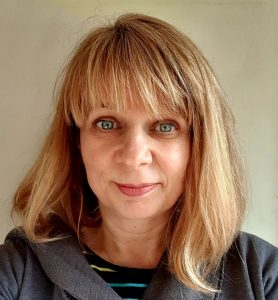Humanitarianism – what does it mean today?
By e.schaessens, on 18 August 2023

On World Humanitarian Day, Dr James Smith, Lecturer and Co-Director of UCL’s MSc in Humanitarian Policy & Practice reflects on the evolution of the humanitarian landscape and some of its inherent challenges.
The United Nations have stressed that the number of people requiring immediate ‘humanitarian assistance and protection’ has never been greater than this year. In the absence of concerted action, the impact of violence, widespread lack of access to essential public services, and wilful political indifference and neglect will continue to generate catastrophic levels of human suffering and ecological damage.
If we define humanitarianism in its broadest sense as a belief in the equal value of human life and a concern for human welfare, then the need for some form of humanitarianism appears as urgent as ever.
At the same time, popularised expressions of humanitarianism have shifted and changed over time. Humanitarian values have been institutionalised and bureaucratised, and corresponding systems and sectors have formed and grown. Now-dominant forms of humanitarianism have histories and contemporary articulations that are intimately tied to capitalism, colonialism and whiteness. Relatedly, criticism of the humanitarian system and its interventions has increased exponentially in recent years, driven forward by scandals that detail abuses of power, the undignified treatment of people in vulnerable situations, and a failure to enact the radical changes needed to alter how financial support is generated and distributed, or the means by which communities can take control of their own decision-making.
The growing number of instructive critiques of humanitarian action should inspire us to identify new ways to teach, study, and enact humanitarian values. It is increasingly clear that existing institutions, systems, and processes need to change and adapt in order to practice an ethics of care and concern. At the same time, calls for transnational solidarity (consider, for example, the vibrant civil society movements that pressed for equitable access to COVID-19 vaccines), and global resource and knowledge sharing, are strong. The fundamental values that define humanitarianism can support and amplify these calls.
With UCL’s new MSc in Humanitarian Policy & Practice we are enthusiastic about working with students and professionals that are representative of the current and future global humanitarian workforce in order to think creatively and critically about humanitarian values and ethical and effective forms of humanitarian action. In doing so we will ensure students have the ability to develop programmes while continually interrogating foundational values, principles and motivations, and to design research studies while thinking critically about the politics of knowledge production, alongside several other priority topics.
By taking these steps we hope to contribute towards future humanitarianisms that enact a concern for our shared welfare in a way that is equity oriented, justice motivated, and solidarity driven.
 Close
Close




